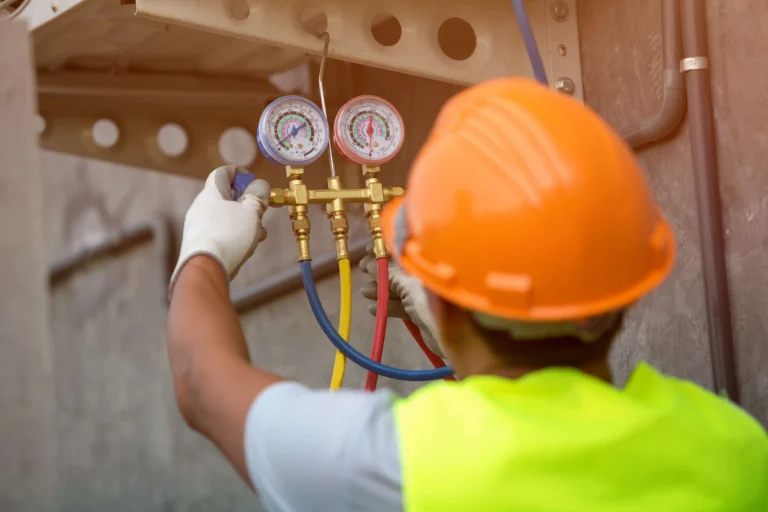Selecting the right HVAC contractor in Quincy, MA is crucial in ensuring the comfort and efficiency of your home’s heating and cooling systems. A competent contractor can provide the necessary services to maintain, repair, or install HVAC systems, enhancing their performance and longevity. We will explore the key factors to consider when choosing an HVAC contractor to ensure you make an informed and confident decision.
Key factors to consider when choosing an HVAC contractor
Assessing Reputation and Reviews
A reliable indicator of a competent HVAC contractor is their reputation within the community—research online reviews on Google, Yelp, and Angie’s List. Customer feedback can provide valuable insights into the contractor’s reliability, quality of work, and customer service. Additionally, word-of-mouth recommendations from friends, family, or neighbors who have had positive experiences with HVAC contractors can be beneficial. A strong reputation often reflects consistent, high-quality service and customer satisfaction over time, making it a critical factor in your decision-making process.
Verifying Licensing and Certifications
Ensuring that an HVAC contractor holds the necessary licenses and certifications is essential. These credentials demonstrate that the contractor has met industry standards and is qualified to perform HVAC work. Verify the contractor’s licensing status with local authorities to ensure compliance with state and local regulations. Additionally, look for certifications from reputable organizations such as North American Technician Excellence (NATE) or the Air Conditioning Contractors of America (ACCA). These certifications indicate that the contractor has undergone rigorous training and testing to maintain high standards of knowledge and skill in the HVAC industry.
Evaluating Experience and Track Record
Experience is a key factor in choosing an HVAC contractor. A contractor with a long history in the business is likely to have encountered a wide range of HVAC issues and developed effective solutions. Review the contractor’s track record by asking for references or case studies of previous projects. This can provide insight into their ability to handle different HVAC systems and challenges. A contractor with a proven track record is more likely to deliver reliable and efficient services, ensuring your HVAC system operates at its best.
Requesting Detailed Estimates
A reputable HVAC contractor should provide a detailed estimate for any proposed work. This estimate should outline the scope of work, materials to be used, labor costs, and any additional charges. Obtaining multiple estimates from different contractors allows you to compare their offerings and make an informed decision. Pay attention to the level of detail and transparency in each estimate. A comprehensive estimate reflects the contractor’s professionalism and commitment to honesty and transparency. It also helps prevent misunderstandings and ensures that both parties clearly understand the project’s scope and costs.
Assessing Communication and Customer Service
Effective communication is crucial for a successful HVAC project. From the initial consultation to the completion of the project, the contractor should maintain open and clear communication. Evaluate their responsiveness to your inquiries and their willingness to address your concerns. A contractor who prioritizes communication will likely keep you informed about the project’s progress, address any issues promptly, and collaborate effectively to achieve the desired outcomes. Good customer service also includes respecting your home and property, arriving on time, and completing the work within the agreed timeline.
Inspecting Quality of Work and Materials
The quality of workmanship and materials used by an HVAC contractor directly impacts the performance and longevity of your system. Inquire about the brands and types of equipment the contractor uses and ensure they align with your preferences and standards. High-quality materials and equipment may come at a higher cost, but they contribute to the efficiency and durability of your HVAC system. Additionally, review the contractor’s portfolio or ask for references to assess the quality of their previous work. Attention to detail and commitment to high standards are indicators of a contractor’s dedication to delivering superior results.
Evaluating Energy Efficiency Solutions
In today’s environmentally conscious world, energy efficiency is important when choosing an HVAC contractor. Look for contractors who offer energy-efficient solutions and products. This includes recommending high-efficiency HVAC systems, programmable thermostats, and proper insulation to reduce energy consumption. An energy-efficient HVAC system reduces your carbon footprint and lowers your utility bills. Discuss energy efficiency options with the contractor and ensure they know about the latest industry technologies and practices.
Considering Local Knowledge and Involvement
Choosing an HVAC contractor with local knowledge can offer several advantages. A contractor familiar with local building codes, climate conditions, and common HVAC challenges is better equipped to provide effective solutions. Additionally, a contractor actively involved in the local community demonstrates a commitment to the area and its residents. This local involvement often translates to higher care and dedication to their work. Local knowledge and community engagement are valuable qualities contributing to a contractor’s reliability and trustworthiness.
Conclusion
Choosing the right HVAC contractor involves carefully considering several key factors, including reputation, licensing, experience, detailed estimates, communication, quality of work, energy efficiency, and local knowledge. By thoroughly evaluating these aspects, you can make an informed decision and select a reliable partner to ensure your HVAC system’s optimal performance and longevity. A well-chosen contractor will enhance your home’s comfort and provide peace of mind through professional and dependable service.
